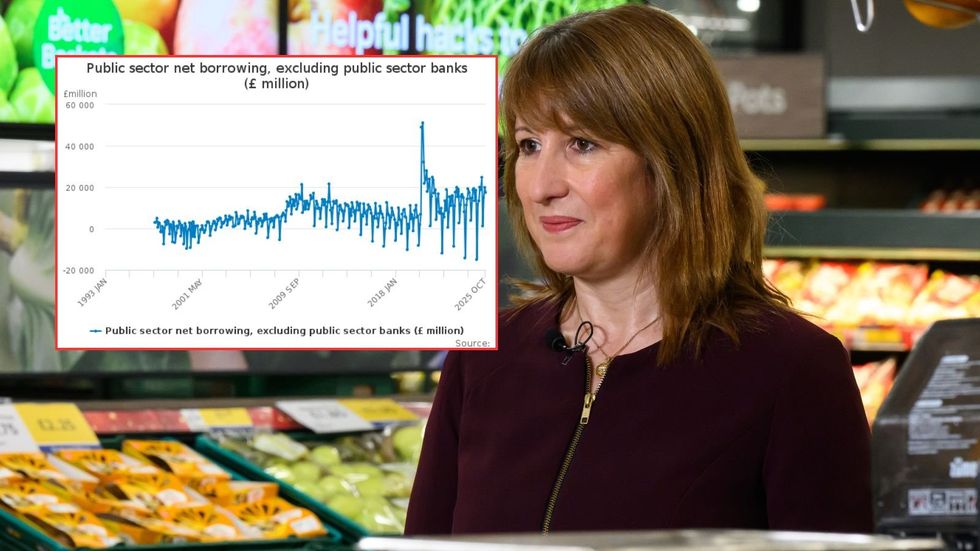UK Government borrowing was more than £2billion higher than expected in October 2025, according to the figures from the Office for National Statistics (ONS).
Based on ONS data, the difference between public spending and tax income was £17.4billion for the month, which is down from the £19.2billion from the same month the year prior.
Despite this, economists had expected UK borrowing to be £15billion over the period, which is slightly higher than the Office for Budget Responsibility’s (OBR) projection of £14.4billion in March 2025.
In a statement, ONS chief economist Grant Fitzner noted borrowing was down compared to 2024 but warned it was “still the third-highest October figure on record in cash terms”.

Treasury Chief Secretary James Murray said next week’s Budget on November 26 would set out how the Chancellor plans to “cut debt””
Mr Murray shared: “Currently we spend £1 in every £10 of taxpayer money on the interest of our national debt. That money should be going to our schools, hospitals, police and armed forces.
“That is why we are set to deliver the largest primary deficit reduction in both the G7 and G20 over the next five years – to get borrowing costs down.
“At the Budget next week, the Chancellor will set out how we will take the fair choices to deliver on the public’s priorities to cut NHS waiting lists, cut debt and cut the cost of living.”
Professor Joe Nellis, an economic advisor at accountancy firm MHA, shared: “Despite signs of improving economic momentum in some sectors and a fall in inflation, the UK’s fiscal position remains fragile, shaped by subdued growth, rising welfare pressures, and the ongoing impact of higher interest rates on Government debt servicing.
“Today’s data show that borrowing for the year has risen compared with the same month last year, driven by a combination of three key factors: weaker-than-expected tax receipts, increased expenditure linked to inflation-indexed benefits, and another sizeable interest bill on index-linked gilts.
“While the headline numbers stop short of a fiscal shock, they underline the limited room for manoeuvre the Chancellor will have when setting out next week’s Budget measures. This is a sobering reminder of the fiscal reality confronting policymakers.
“The implications for the Budget are clear. Many Government departments already operating under tight budgets are unlikely to see substantial relief, and any additional spending commitments will need to be highly targeted”
THIS IS A BREAKING NEWS STORY…MORE TO FOLLOW
LATEST DEVELOPMENTS
Our Standards:
The GB News Editorial Charter







Follow